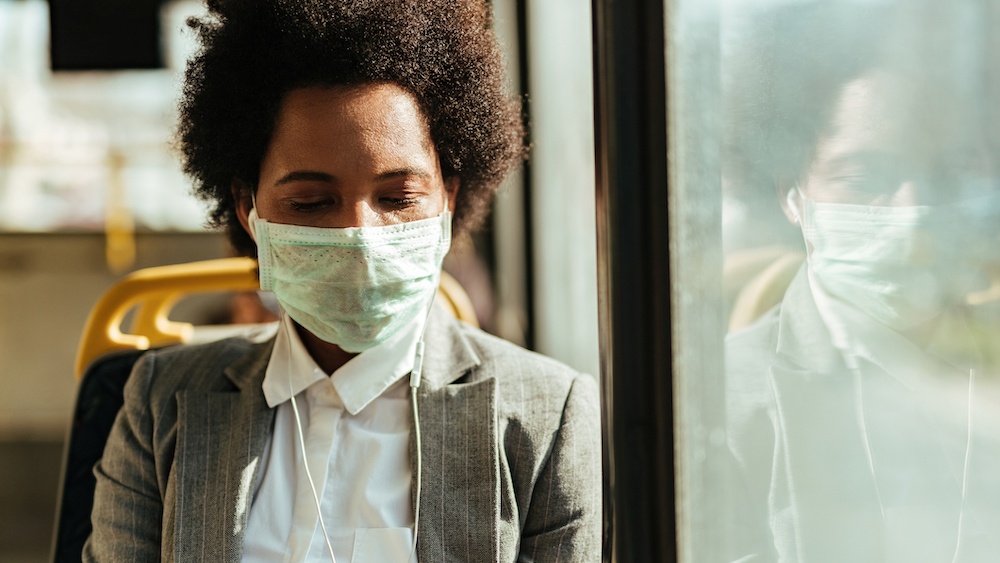If you’re interested in sharing your opinion on any cultural, political or personal topic, create an account here and check out our how-to post to learn more.
____
Co-written by Claris Smith, Akua Smith, Mignon Smith and Meme Thomas
____
The novel coronavirus disease-2019 (COVID-19) pandemic has challenged the United States to confront health disparities yet again. As African-American women with expertise in healthcare, public health, education and law, our goal is to discuss and analyze health disparities among African-Americans while also providing information to educate and empower.
Early data from several cities has shown that African-Americans are disproportionately impacted by COVID-19 compared to other groups. As of the date of this publication, African-Americans represent 52% of deaths due to COVID-19 in Milwaukee County, despite being less than a third of the county’s population. In Chicago, African-Americans are 30% of the population, yet 54% of COVID-19 related deaths (as of April 30, 2020).
The disparities noted in these two locales parallel the trend identified in several communities throughout the country. These statistics illuminate a multifaceted problem due to several factors, including delays in access to care, mistrust of healthcare institutions and a focus on myths as compared to scientific data.
Unfortunately, health disparities in the African-American community existed prior to this pandemic and they contribute to the disproportionate impact of COVID-19. Health issues are cumulative and intergenerational, such that exposure and disease experienced in the womb may manifest later in life or in subsequent generations (preeclampsia; gestational diabetes). African-Americans are 60% more likely to have diabetes, and two to three times more likely to suffer from diabetes-related complications, including end-stage renal disease, lower limb amputation and death. Epidemiologists have associated the increased COVID-19 mortality rates for African-Americans with underlying comorbidities, such as diabetes and heart disease.
Several overlapping factors, which are rooted in slavery, foster these health inequities — mistrust, access to healthcare, allocation of resources, racism, bias and discrimination. The denial of basic human rights, inferior treatment and systemic barriers in accessing and leveraging institutional resources for centuries perpetuate these disparities. There is an enduring sense of mistrust given the history of discrimination and, even at times, unethical research practices that targeted African-Americans. This history includes the investigation of the clinical progression of syphilis in untreated African-American men in the Tuskegee Study, the use of the cells of Henrietta Lacks without her consent and the exposure of hundreds of children in Baltimore to lead poisoning. Though many are familiar with the aforementioned examples, the degree to which African-Americans have been exploited for medical research over the past four centuries is still unknown.
Nonetheless, addressing the disparities in institutional resources must remain a priority. Recently, the proposed allocation of $13 million in COVID-19 funding for Howard University Hospital, which serves the African-American community in the nation’s capital, was questioned by a congressman. Resistance to the allocation of resources intended to improve the wellbeing of African-Americans further deepens mistrust. Despite these challenges, African-Americans have made innumerable contributions to society, and specifically the COVID-19 relief efforts, including Surgeon General, Dr. Jerome Adams, American Medical Association President, Dr. Patrice Harris and the immunologist who is leading the team for the development of a COVID-19 vaccine at the NIH Vaccine Research Center, Dr. Kizzmekia Corbett. The contributions of these individuals is even more laudable because of the lack of federal leadership and varying state guidelines.
Given both the roadblocks, and the paucity resources, we must rely on accurate data sources, avoid personal exposure and protect our most vulnerable members (the elderly and those with underlying conditions). As a community, we need to align our behaviors with the recommendations of public health and medical experts (i.e. CDC) and model those states and countries that are leading the way in flattening the curve.
Given that African-Americans are no longer the largest minority, according to the 2010 Census data, it is even more critical that we use our collective voices to vote for political leaders who serve our interests and hold those leaders accountable. At the governmental level, we must implore our federal and state leaders to develop a multidisciplinary task force, collect and analyze data, and create a roadmap for addressing health disparities, while engaging African-American stakeholders.
As we look to a future where COVID-19 is no longer a threat, the development of a coordinated effort to address these disparities will enable us to mitigate the impact that historical factors have had, and continue to have, on the health care of our community.
____
Melody Smith, MD, is a hematologic oncologist living in New York.
Claris Smith, JD, MS, is an attorney and public health professional living in New Orleans.
Akua Smith, MS, MBA, is a healthcare professional living in Dallas.
Mignon Smith, MPM, is an education consultant living in Washington, DC.
Meme Thomas, JD, is an attorney living in Austin.
